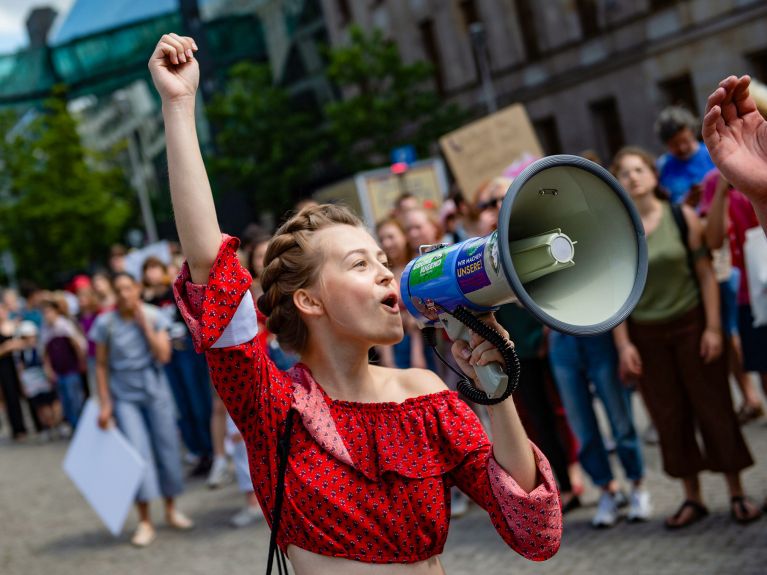What Germans protest about
Historian and protest researcher Philipp Gassert from the University of Mannheim explains how Germany’s culture of protesting has evolved.

Professor Gassert, Germans don’t even cross the street when the pedestrian light is red – or so the cliché goes. How does this tie in with the many protest movements we have seen in recent times?
Germans also show considerable discipline and stamina when it comes to protesting – though they are less well-behaved than the cliché might lead one to expect. Street protests are an integral part of our political culture. The major peace movements of the 1950s and 1980s are some of the highlights of non-conventional civic participation. The kind of youth protests we are experiencing once again at the moment also have a long history in Germany.

How does Fridays for Future differ from the student movement in the 1960s or the environmental movement in the 1980s?
Fridays for Future sees large numbers of young people taking to the streets. The student and environmental movements mobilised students in particular, but also older generations.
Is the protest culture in Germany different from than in other countries?
The ways in which people protest, and the repertoire of forms encountered, do not differ fundamentally from those in other liberal democracies. Nonetheless, there are some specific national areas of focus. For historical reasons, the issue of peace is particularly firmly anchored in our protest culture. Furthermore, protests are more frequently about political problems rather than social issues – as is the case in France or Italy, for example.
Which role is played by social media in German protest culture?
They play a central role as a means of mobilising people, organising movements and communicating within them – though they are also used for external communication with politicians and society. Protest movements have always been very good at taking advantage of whatever the latest medium is, and at creatively responding to media shifts. One reason why the 1968 student movement became so prominent was because it exploited the opportunities offered by television and photojournalism. The situation is similar with Fridays for Future and the social media today.
Which protest movement changed Germany the most?
The new women’s movement, because it succeeded in permanently anchoring the subject of gender equality in society. The changed relationship between men and women is the most important social transformation since the 1960s. The environmental movement has also been extremely successful in Germany.
You would like to receive regular information about Germany? Subscribe here:


